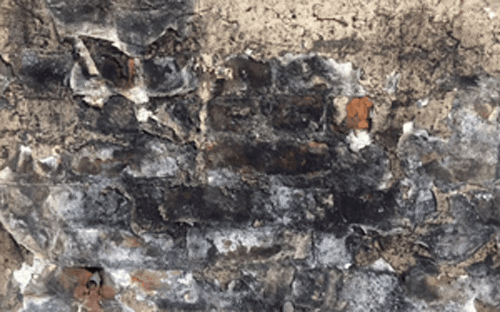Do I Need To Check For Moisture Before Installing a New Floor?
The simple answer to that question is an absolute yes! Any time that you are installing a new floor in a residential or commercial space, the current surface should always be thoroughly checked for the presence of any moisture. While moisture or water can often not be detected by the naked eye, advanced testing of what was originally thought of as a dry surface, often reveals the presence of moisture.
Approximately 85% of all floor installation failures result from moisture problems. If moisture goes undetected at the time of a floor installation many future problems may arise. If a floor is installed on a moist or moldy concrete surface, over time, moisture related problems may include:

Adhesive Failure
If moisture comes up through concrete, it builds up between the concrete and floor coating. Over time the adhesive breakdown and no longer sticks to the floor. This can lead to the floor finish popping up or blistering.
Mold and Mildew
When there is a buildup of moisture between concrete and a floor or floor coating, mold and mildew can occur. In addition to damaging the floor, mold spores can get into the air and become a hazard to breath.
Floor Coating Blistering
If moisture rises to the surface of the concrete and gets trapped in between the floor coating and the concrete, blistering can occur. The entire floor coating will eventually pop up or blister.
A quality floor installation can only be successful if the surface area is completely dry and free of moisture. Therefore it is extremely important before installing a floor on a concrete (or any type) of surface, to have the area tested for moisture. The National Wood Flooring Association recommends that the existing floor, the subfloor, and all new flooring materials should be tested for moisture.
The only way to know the true moisture condition of a concrete surface is to have the area professionally tested. Advanced Moisture Testing can perform a complete moisture testing evaluation of the concrete surfaces in a residential home or a large commercial facility. They can perform comprehensive moisture tests including:
- Calcium Chloride Test – This test is used to determine the rate of moisture emitted from a concrete slab. It can help to determine the acceptability and condition of the floor covering.
- Hood Test – This test determines the relative humidity above the surface of a concrete slab.
- Core Testing – This testing consists of drilling a portion of the concrete slab out and sending it to a lab for testing. The results help determine if certain contaminants are present in the slab, which would affect the installation of the floor covering.
- F710 pH Test – This pH test determines the acceptability of a concrete floor based on the alkalinity or acidity of the slab. This is intended for the installation of resilient flooring.
- F2170 Concrete In-Situ RH – This test determine the relative humidity in a concrete slab. If excessive moisture permeates from the slab after an installation, a floor covering system can fail.
If you are planning on installing a floor, contact the experts at Advanced Moisture Testing before you begin, to perform any necessary moisture testing services. This will ensure a successful floor installation and eliminate any future flooring problems. Call for a consultation today at 631-567-9269 or 631-567-9314.
